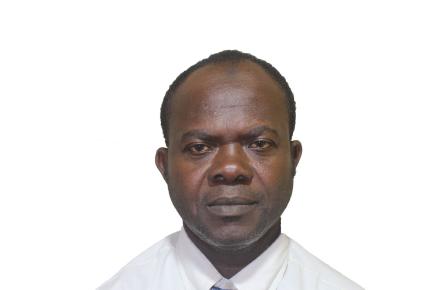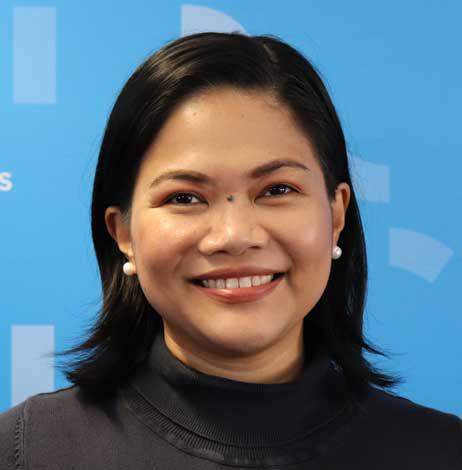
Championing change: A spotlight Interview with Ahmed Malide and Hayad Robleh
“We are witnessing climate change not on the news but in our streets, our fields, and in the decisions, people make to leave home behind. And yet the funding needed to act is missing. People are angry. I joined the Africa Sustainable Development Academy because I needed tools and networks, not just passion, to push for change.”
Ahmed Malide is the president of the House of Civil Society Organizations (Maison des Organisations de la Société Civile - MOSC) of Anjouan, in the Comoros. He is an environmentalist, working in water management and sustainable waste practices, and a human rights activist involved in transparency, governance and anti-corruption work.
Like Ahmed, Hayad Robleh is an activist from Djibouti with a desire to grow from hands-on advocacy into informed leadership. She is mostly engaged in work with women and the youth at community level, supporting the cause of sustainable waste management.
In November 2024, Ahmed and Hayad joined the Africa Sustainable Development Academy (ASDA) − a programme designed by UNSSC to empower African leaders with the tools and skills to address the complex challenges of climate change, conflict and economic instability. In this spotlight interview with UNSSC’s Paulyn Duman, they reflect on how taking part in ASDA translated into more impactful, focused and far-reaching work in their region.
Paulyn: Ahmed, Hayad, what inspired you to take part in ASDA, and what were you hoping to take away from the experience?
Ahmed: I wanted to understand what sustainable development really means – to explore its forms, its characteristics, and how it can be applied in my context.
In the Comoros, the concept of sustainable development is very recent. For several decades, we have been familiar with it within civil society through various interventions, supported technically and financially by development partners. To date, this concept is still not anchored in the political class. Thus, with each change of political regime, the new leaders erase the gains. At the constitutional level, for example, several constitutional changes have led to a setback in the progress. These changes, which are plunging the country into an unprecedented political, economic, and social crisis, are due to non-compliance with the law and inequalities. As civil society, we are constantly forced to start from scratch. This is not sustainable development – it's chaos.
As the president of the House of Civil Society Organizations of Anjouan, I felt the responsibility to push forward. To learn. To become an ambassador for others. This was my motivation for joining the Africa Sustainable Development Academy.
Hayad: I am an activist. For me, it’s always been about action, action, action. Recently I’ve realized that knowledge is just as important. I wasn’t well-versed in climate change and sustainable development, so when the UN nominated me for ASDA , I said yes without hesitation.
My main motivation for joining was to gain access to information and strengthen my knowledge base, but I left with so much more than that.
Paulyn: During the programme we covered a wide range of topics. Can you share which topic, session, or speaker had the greatest impact on you?
Hayad: Absolutely – climate refugees.
Djibouti is a small country – only 23,000 square kilometres – and we are heavily affected by climate change. People are leaving their rural homes, moving closer to cities in search of survival. Hearing about displacement in the context of climate change in the academy gave me new perspectives and reinforced the urgency of the work we do.
I was also very impacted by the session on climate finance. Africa bears the brunt of climate change, yet funding remains a major challenge. ASDA helped me move from frustration to strategic thinking by having Rose Mwebaza – an expert in climate change, environment and sustainable development issues – join us remotely. Participants bombarded her with questions, refusing to let her leave until they got the insights they needed. She showed us that adaptation is not just about money but about mindset, planning and local action. I used to think leaders didn’t care. After ASDA, I realized many do but they lack the tools, alignment, or support. That shifted my mind. It was a powerful moment that highlighted the passion and commitment of everyone involved.
Ahmed: The themes that had the most impact on me were climate change, conflict and displacement. Like Hayad mentioned, the Global South is the most affected by climate change.
In the Comoros, the population is highly exposed to the combined effects of population growth, a series of political, economic, social crises, and climate change. This situation forces many to attempt the dangerous crossing, aboard makeshift boats, to the island of Mayotte in search of a better future. Tragically, thousands of people have lost their lives on the journey to Mayotte – according to a report by the French Senate, between 1995 and 2012, about 7,000-10,000 people perished. Worse still, during the second commemoration of the victims of the Balladur visa, held on January 18, 2021 at the Soirhane Primary School in Mirontsy, the Governor of the Island of Anjouan announced in his speech that more than 20,000 people had died since the introduction of this most unjust border. This figure could be even higher today, and for a small country like ours, this pain fuels my mission.
The ASDA programme helped me see how understanding sustainable development could address these challenges. If authorities invested in climate adaptation and provided citizens with the services they need, we could prevent such tragedies. That’s the brighter horizon we’re working towards.

.
Paulyn: This connects beautifully to the next question, which is how has taking part in ASDA changed the way you approach your work?
Ahmed: In my organization, I often lead project development and have a central role in the writing of the projects. However, many of these projects have been rejected because they don’t satisfy sustainability criteria.
For example, during COVID-19, La Francophonie avec Elles, in its 2021 edition, launched a call for projects with the aim of empowering women and girls to recover from the crisis with dignity and to face future ones by strengthening their access to economic development, education, health, and by protecting them against all forms of violence that hinder and constrain them.
In this context, MOSC Anjouan proposed a project to support and assist women and single mothers raising children alone, to help them become more economically independent and to support their children's education and health, in six different localities. As you know, in the Comoros, although the Family Code prohibits it, early marriage still exists and is practiced in several rural villages, particularly on the island of Anjouan. Young girls are forced by their parents to marry at a very young age (12 years old) and, after a while, they find themselves alone with children to care for.
This project did not receive sufficient approval from the donor because it did not develop a sufficient communication or sustainability strategy. Therefore, the project was rejected and has not yet received funding.
After completing the Academy, I am now more aware of and knowledgeable about sustainable development, and I make sure that all our planned actions comply with sustainability requirements and go from being abstract plans to being tangible impact. Thanks to the training in project design, implementation, monitoring and evaluation we received, I am also able to work more effectively in the field and bring the necessary expertise.
Hayad: Before ASDA, every time I used to hear a politician talk about development, I assumed that they didn’t care about the environment. Now I understand – after learning about all the ongoing agendas, plans and projects in Africa – that sustainable development and environmental action can go hand in hand. It has been an eye-opening experience.
The other thing that has changed in the way I approach my work is that I have started applying the design thinking tools. Specifically, in the implementation of projects, I now incorporate a long-term view that considers what kind of future we envision for the beneficiary community.
For instance, with my organization – SOS Environnement Djibouti – and in collaboration with both governmental and non-governmental institutions such as the Sovereign Carbon Agency (SCA), we are combating the use of non-biodegradable bags in Djibouti. We recently launched a project to distribute kraft paper bags made from natural materials, as well as 100 per cent recycled reusable bags, in nearly all major supermarkets as well as households. The idea – which incorporates the long-term vision – is to prepare the population for the transition to a plastic bag–free country in the coming years.
Paulyn: Thank you both for your answers. Hayad, earlier you said that the academy gave you much more than you expected – would you like to expand on that?
Hayad: Absolutely. I was referring to the network I built through this experience, which has greatly influenced how I work. Connecting with others facing similar challenges – like water scarcity – allowed me to learn from their solutions and apply best practices to drive progress in my own region. What I understood during ASDA is that collaboration is a winning strategy.
Paulyn: I agree. That’s why we tried to make the academy as collaborative as possible. What message would you give to others who are considering enrolling in this programme?
Ahmed: I just want to conclude by saying that – despite occasional language and connection issues – this was the best programme I have ever attended in my professional life. It was a unique, accessible and seamless learning experience.
Hayad: I really want to thank you and the whole team behind the programme. To colleagues who might be presented with this opportunity, I will just say: Please, go. You will leave this training with a lot more information, confidence and connections.
Want to bring a UNSSC sustainable development academy to your country or region?
We specialize in tailoring programmes to local and regional priorities. To explore how we can co-design and deliver an academy with you, get in touch at sustainable-development@unssc.org.
